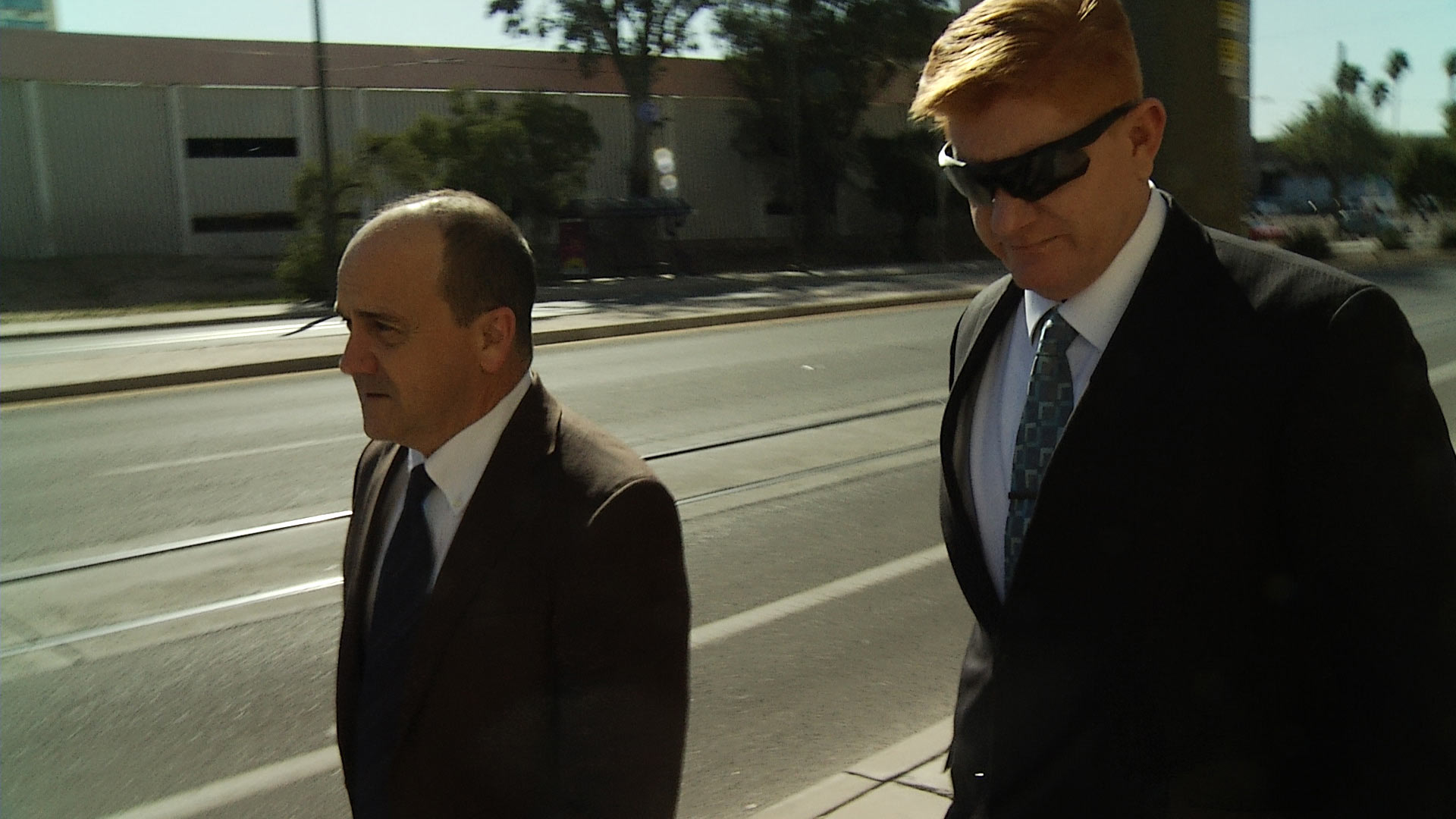 Border Patrol agent Lonnie Swartz, right, walks into federal courthouse with his attorney, April 2018.
Border Patrol agent Lonnie Swartz, right, walks into federal courthouse with his attorney, April 2018.
A federal jury has found Border Patrol Agent Lonnie Swartz not guilty of second-degree murder in the cross-border shooting death of a Mexican teenager in 2012.
The jury could not agree on two other charges: involuntary manslaughter and voluntary manslaughter, leaving the possibility open for another trial on those charges. The prosecution did not comment on that possibility Monday.
Swartz was charged after he fired his gun through the international border fence from Nogales, Arizona, into Nogales, Sonora.
Art Del Cueto, a local and national Border Patrol union officer, said the union was happy with the not guilty verdict.
"You had a federal agent that was doing his job, defending our borders and he was attacked by a criminal element and he was attacked in a way that could have killed him or other agents and he did the right thing," Del Cueto said.
During the trial, Swartz testified that he shot teenager Jose Elena Rodriguez in self defense because the teen was throwing rocks at him and other agents. Del Cueto said the verdict speaks directly to other Border Patrol agents.
"You can continue doing your job, the way you've been doing it, which is the correct way," Del Cueto said. "And if you get attacked or your life is in danger, you have a right to defend yourself."
Richard Boren is a supporter of Rodriguez's family, and followed the case. He said it sends a different message to Border Patrol agents.
"The clear message that has come out of this case up to this point is that it's ok for law enforcement, Border Patrol, to gun down people, at will, for all practical purposes, and get away with it," Boren said.
The verdict shows law enforcement is not accountable, he said.
"The Border Patrol themselves do not hold agents accountable, and up to this case, even the U.S. Justice Department has not held anyone accountable," Boren said.
The case
The prosecution and defense agreed that on Oct. 10, 2012, Swartz fired 16 times through the international fence into Mexico, hitting 16-year-old Elena Rodriguez 10 times in the back and neck.
In his closing arguments, Assistant U.S. Attorney Wallace Kleindienst told the jury that Swartz is not God, "He can’t decide who lives or dies."
Kleindienst told the jury Elena Rodriguez was part of an attempt to smuggle two backpacks of marijuana from Mexico into the U.S. His job that night was to throw rocks at Border Patrol agents to distract them as two other men tried to climb the fence to get back into Mexico, Kleindienst said.
By the time Swartz arrived on the scene, the danger had subsided. "Swartz could have done what the other agents did," said Kleindienst, "take cover and assess the situation."
Instead, Kleindienst said, the agent, an expert marksman, took aim and fired on the teen as he was attempting to run away. Swartz fired 16 shots in 34 seconds, hitting Elena Rodríguez 10 times in the back and head. The prosecution says it shows "malice aforethought," or reckless disregard for human life.
Defense attorney Sean Chapman said Swartz was justified in his use of force. He called the prosecution's version of that night "a gross distortion of reality."
He said Swartz did what he was trained to do: use deadly force when necessary. He said the 16-year-old was part of a drug-smuggling operation that night and presented a danger.

By submitting your comments, you hereby give AZPM the right to post your comments and potentially use them in any other form of media operated by this institution.